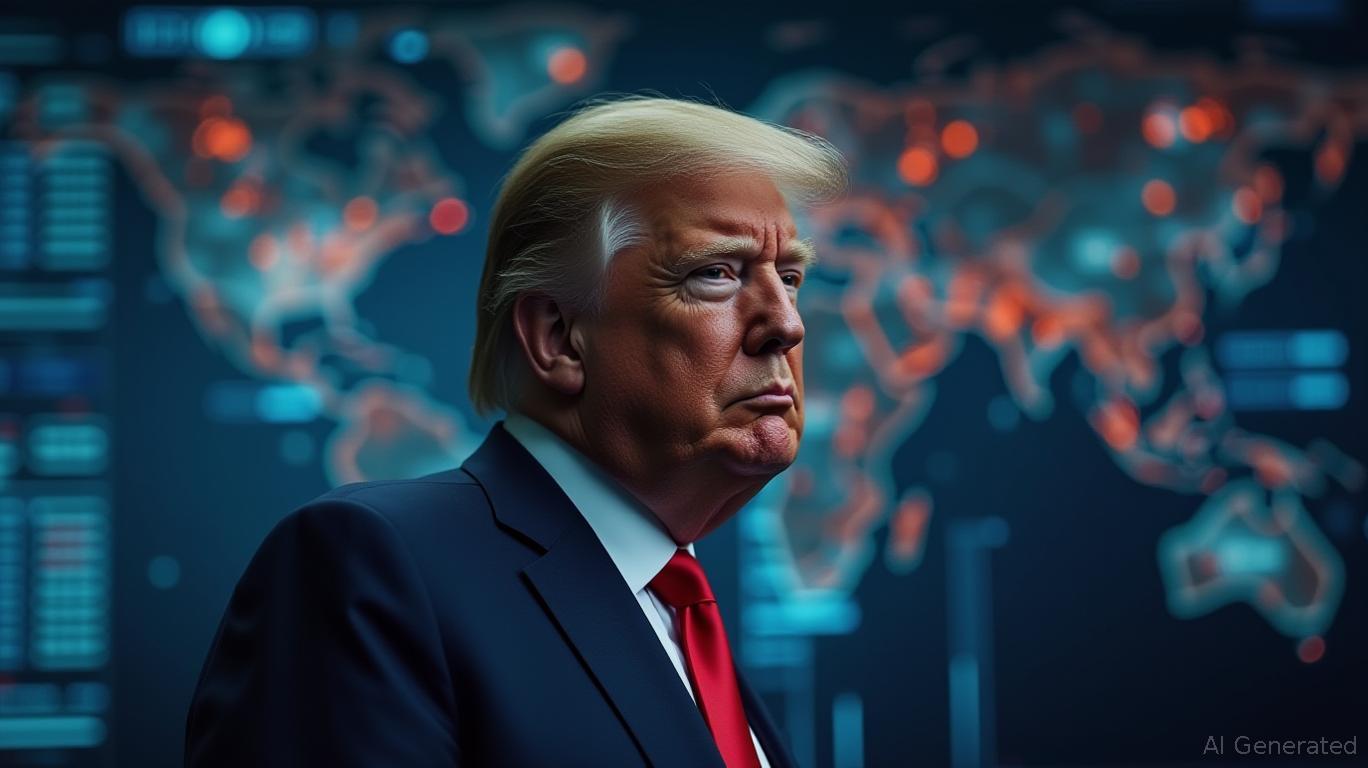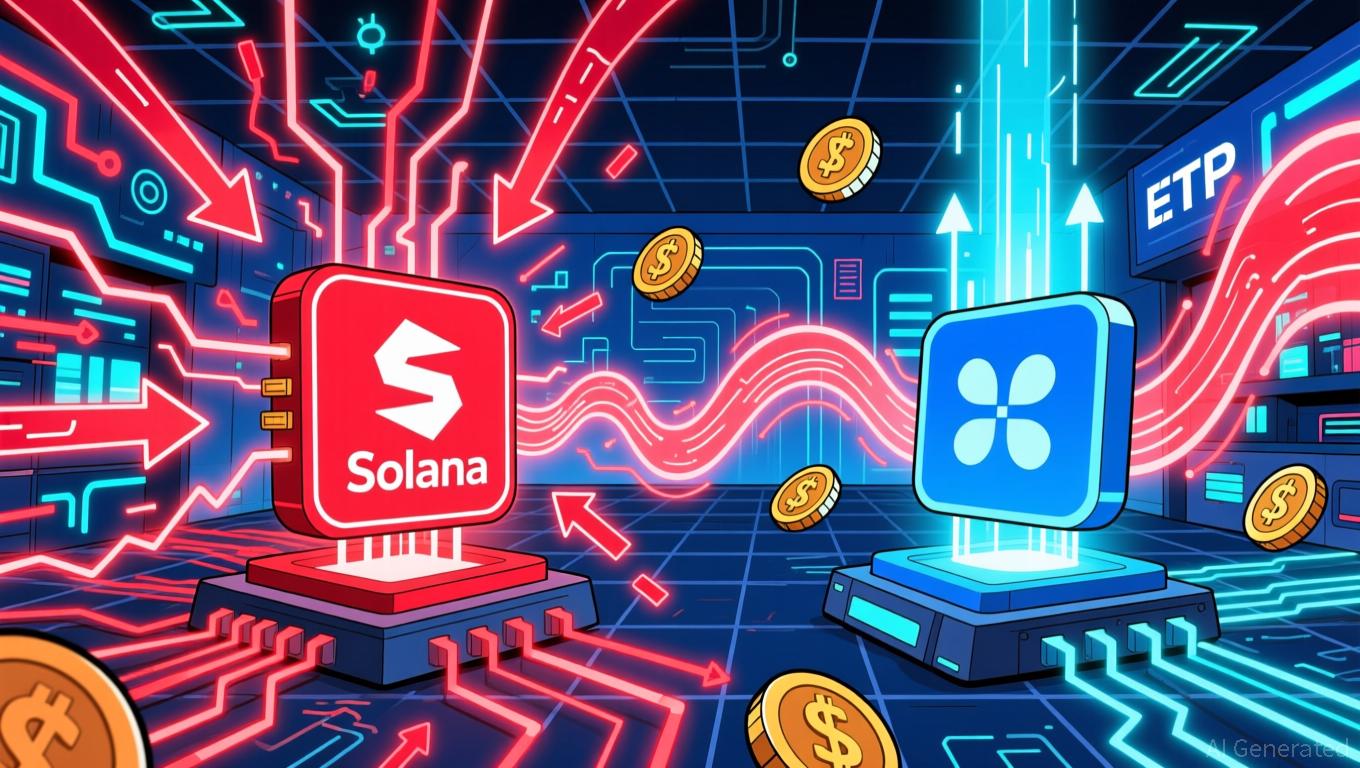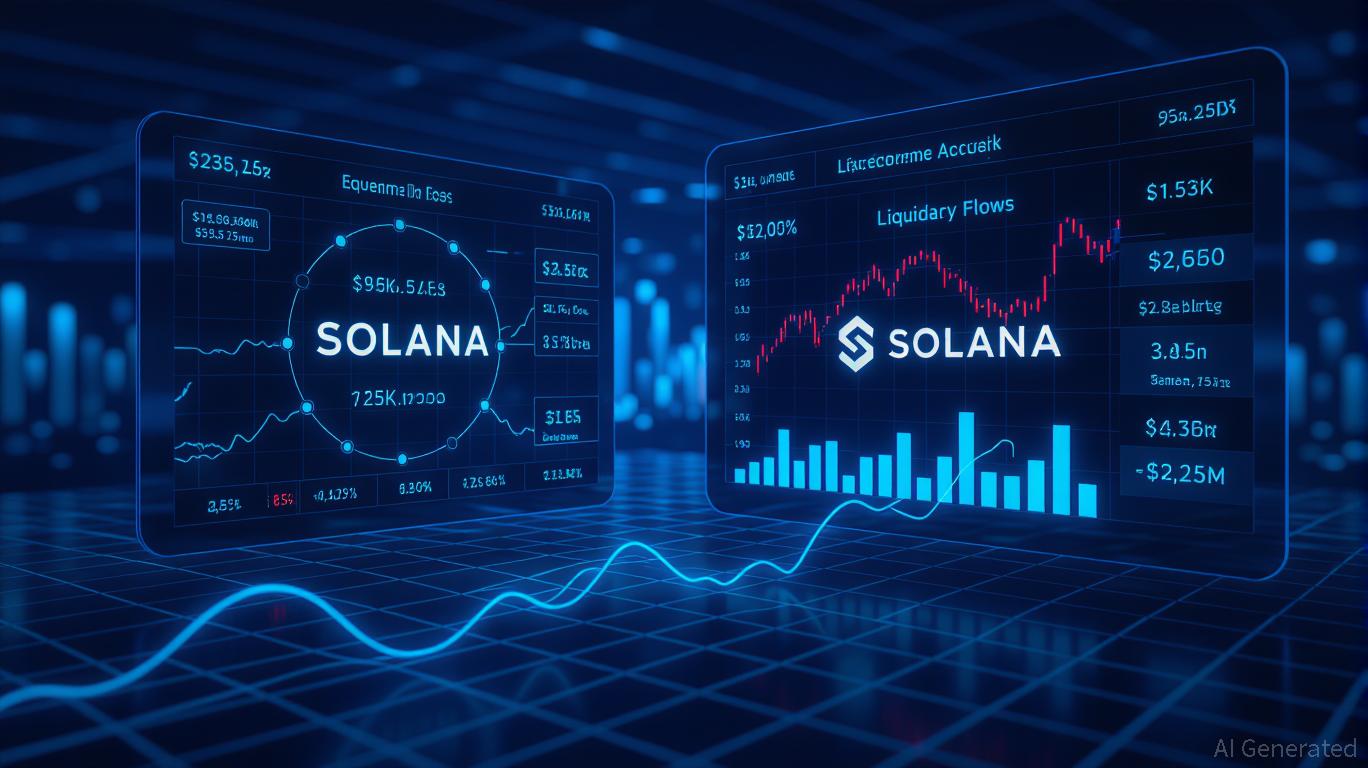Trump’s Approach to Tariffs: Balancing National Security and Bitcoin’s Unpredictable Prospects
- U.S. BIS launched 232 investigations into imported PPE, medical devices, and industrial machinery to assess national security risks under Trump's supply chain strategy. - Proposed tariffs could trigger $1,000/year household costs and Chinese retaliatory duties, risking inflation and global trade disruptions. - Bitcoin prices fell 5.4% after tariff announcements, showing heightened volatility as macroeconomic uncertainty impacts crypto markets. - Tariffs on semiconductor equipment may indirectly affect Bi

The Bureau of Industry and Security (BIS) within the U.S. Department of Commerce has launched two fresh Section 232 probes to evaluate how imports of personal protective equipment (PPE), medical devices, as well as robotics and industrial machinery, may affect national security. Announced on September 26, 2025, these reviews are part of the Trump administration’s broader agenda to identify supply chain weaknesses and reduce risks associated with foreign control in essential industries. The investigations invite public feedback for 21 days, after which the Commerce Secretary must deliver a final report to the President within 270 days. Depending on the findings, the administration could introduce tariffs or other trade restrictions to support domestic manufacturing and lessen dependence on overseas suppliers U.S. BIS Seeks Comments on Section 232 Investigations of Imports [ 1 ].
Section 232, established under the Trade Expansion Act of 1962, gives the President authority to regulate imports that may endanger national security. Past use of this power has resulted in tariffs on products like steel, aluminum, and semiconductors. The current investigations expand this scope to include pharmaceuticals and vital minerals. The Trump administration has adopted a dual strategy: using “baseline” tariffs to negotiate reciprocal trade deals and deploying targeted Section 232 tariffs for key industries. This approach underscores a focus on economic strength over diplomatic concessions, with the possibility of tariffs being applied to a broader array of products Section 232 Investigations - Bureau of Industry and Security [ 2 ].
The prospect of new tariffs has sparked worries about rising inflation. According to Yale Budget Lab analysts, the proposed tariffs could cost American households up to $1,000 each year, while China’s potential countermeasures—such as a 34% tariff on U.S. agricultural and energy goods—could further disrupt global commerce. Such inflationary effects may squeeze consumer spending, dampen demand for riskier assets, and complicate the Federal Reserve’s policy decisions. These trends are already visible in cryptocurrency markets, where
Historically, Bitcoin’s value has moved in tandem with broader economic uncertainty. After the tariff announcements in April 2025,
The relationship between tariffs and Bitcoin’s price goes beyond direct trade effects. For example, tariffs on imported equipment for semiconductor manufacturing could raise costs for U.S.-based Bitcoin miners, indirectly impacting the cryptocurrency’s supply. However, Bitcoin’s decentralized structure shields it from direct taxation, and a decline in U.S. mining could shift activity to lower-cost regions abroad. Over time, inflation driven by tariffs may enhance Bitcoin’s reputation as a store of value, especially if traditional currencies lose purchasing power. Goldman Sachs experts suggest that a 20% increase in tariffs on Chinese goods could speed up investment into decentralized assets like Bitcoin How Might New Tariffs Affect Bitcoin? - The Motley Fool [ 5 ].
Analysts at BiyaPay point out that tariffs have a double-edged effect on Bitcoin. While immediate inflation and economic uncertainty can weigh on prices, declining confidence in conventional financial systems could strengthen Bitcoin’s appeal as a long-term safeguard. If the Federal Reserve responds to a tariff-induced downturn with quantitative easing, Bitcoin could benefit from increased liquidity. Nevertheless, the timing of these effects is unpredictable, and short-term volatility is likely as markets adjust to new policies.
Disclaimer: The content of this article solely reflects the author's opinion and does not represent the platform in any capacity. This article is not intended to serve as a reference for making investment decisions.
You may also like
Ethereum News Update: Amundi’s Integrated Approach Connects Blockchain with Conventional Financial Regulations
- Amundi, Europe's largest asset manager, launched its first Ethereum-based tokenized money-market fund, enabling 24/7 settlements and transparent record-keeping via blockchain. - The hybrid model, developed with CACEIS, combines traditional fund operations with blockchain-based ownership, preserving regulatory compliance while expanding investor access. - Ethereum's dominance in stablecoin and RWA transfers ($105.94B in 30 days) underscores its role in accelerating tokenization, with Amundi positioning it

XRP News Today: XRP ETFs Drive Price Increases, While Solana ETFs Ease Selling Pressure
- XRP ETFs raised $587M in inflows since late November, outpacing Solana's $568M as investors favor altcoins with regulatory clarity and utility. - Bitwise XRP ETF's $107M debut and zero-fee strategy drove momentum, while Solana ETFs faced $156M weekly outflows due to network reliability concerns. - XRP's inflows acted as a "battering ram" pushing prices above $2.27, contrasting Solana's ETFs which merely dampened sell pressure without reversing its decline. - Analysts predict XRP could reach $3 by Decembe

The Federal Reserve's Change in Policy and Its Impact on Alternative Cryptocurrencies Such as Solana
- Fed's 2025 policy shifts, including rate cuts and stablecoin regulations, are reshaping altcoin markets by altering liquidity and risk appetite. - Solana's Alpenglow upgrade (150ms finality, 1M TPS) addresses scalability issues, aligning with Fed's AI-driven infrastructure focus despite network reliability concerns. - Institutional inflows into Solana ETFs ($100M AUM) contrast with retail caution (78% HODLers in red), highlighting divergent risk perceptions amid 30% price corrections. - Divergent ETF flo

Avail's Intent-Driven Nexus Addresses the Issue of Fragmented Liquidity Across Chains
- Avail launches Nexus Mainnet, a cross-chain solution unifying liquidity across Ethereum , Solana , and EVM networks. - The intent-solver model enables seamless asset transfers without technical complexities, streamlining user experiences. - Developers gain modular tools for multichain integration, reducing costs as cross-chain liquidity demand grows. - Nexus abstracts execution layers, offering unified balances and execution while addressing fragmentation challenges. - With $50B+ in cross-chain activity
